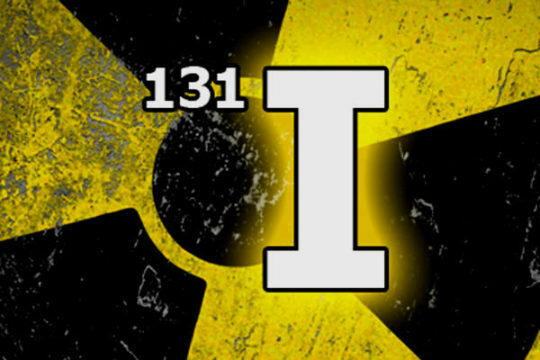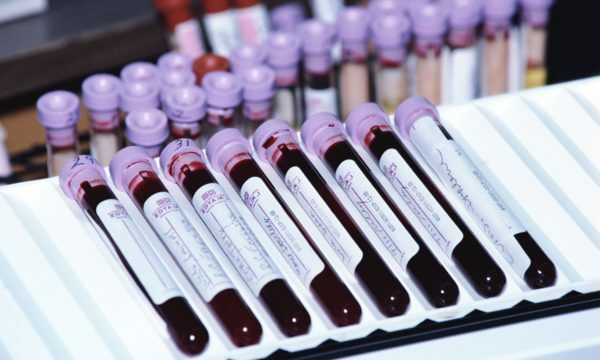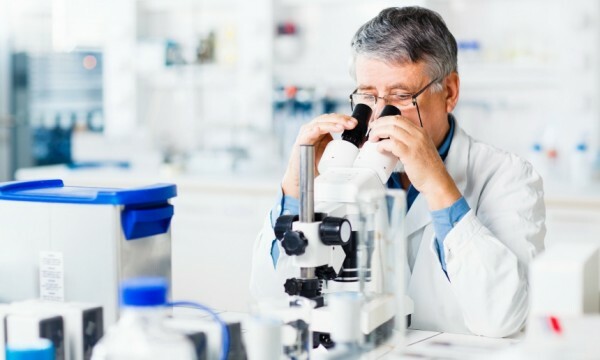A failure in the thyroid gland may lead to a disease such as hyperthyroidism. This pathology arises because of the excessive production of thyroid hormones, so it is often called a thyrotoxicosis in physicians. Symptoms of such a disease at the initial stage of the disease are quite invisible, in this regard, doctors classify such a pathology as subclinical( latent).

Despite the fact that endocrinological failure does not cause physical discomfort to a patient, such a violation requires qualitative diagnosis and immediate treatment. The latent progression of the disease can lead to serious disturbances in the metabolic processes of the whole organism.
The cause of the disease
To date, the exact cause of the occurrence of hormonal failure in the body can not even be sounded by qualified specialists. Quite often, subclinical hyperthyroidism has a hereditary character and is transmitted genetically from generation to generation. The negative impact on the thyroid gland can also be exerted by various external factors. If we talk about the age of the disease, then most often at risk people fall after 50 years. The main reasons for subclinical hyperthyroidism are the following:
- Chronic lack of iodine in food;
- Negative action of medicines;
- Oncological disorders;
- Postpartum thyrotoxicosis;
- Operational intervention with complete or partial removal of the thyroid gland;
- Radioactive effects on the organ after 50 years;
- Iodine therapy.
Quite often, exacerbation of subclinical hyperthyroidism occurs against the background of multinodular goiter. Also, various infections can provoke the disease.
Hidden and overt symptoms of
disease Subclinical course of the disease makes it difficult to diagnose the problem in time. In the absence of complaints from the patient, it is possible to detect a malfunction in the endocrine system only from deviations in metabolic processes. Thyrotoxicosis can affect the following systems of the body:
- Central nervous system. The patient may experience depressive conditions, excessive excitability, loss of sleep, unreasonable anxiety.
- Violation of mental activity, memory loss, fatigue.
- As a result of metabolic disorders, a sharp weight gain can be observed.
- From the side of the cardiovascular system, such alarming symptoms as atherosclerosis, stenocardia, increased blood pressure begin to appear.
- In the area of the digestive system, there is an increase in peristalsis, the patient suffers from a disorder of the stool. There is also an increase in appetite.
Subclinical hyperthyroidism may be transient. Symptoms of the disease can disappear on their own, and after a while manifest again. Most often this phenomenon occurs in the following situations:
- The thyroid gland underwent a surgical operation;
- Incorrect hormone replacement therapy;
- Use in the treatment of drugs with a content of lithium and potassium perchlorate.
To confirm the visible and hidden symptoms of subclinical hyperthyroidism, it is necessary to conduct repeated examinations of all systems every six months.
Diagnosis of thyrotoxicosis
Visual examination of the patient with suspicion of hyperthyroidism is practically meaningless, since it is almost impossible to test the physiological changes of the thyroid gland. In this regard, for accurate diagnosis of pathology, doctors primarily prescribe a blood test for the level of hormones TTG, T4 and T3.The endocrinologist should decipher the result obtained. If a deviation from the norm was detected during the primary examination, the doctors diagnose hyperthyroidism with a question mark, and the treatment at this stage is not assigned.
Quite often, during an initial survey, errors can be made that will lead to data corruption. Therefore, after a three-month break, you have to pass a second analysis. If the pathology is confirmed, additional diagnostics can be assigned to the next stage:
- Thyroid examination by ultrasound.
- Biopsy, in which the internal tissue of the organ is taken by inserting a thin needle under the skin.
- Thyroid scintigraphy, in which a radioactive isotope test is performed. At the time of irradiation, the organ is visualized on the screen. Doctors analyze the contours and forms of thyroid gland, examine the image for the presence of nodal formations.
All results of the conducted studies are carefully studied by several specialists, and only after the affirmative diagnosis the patient is prescribed a course of treatment.
Tactics of treatment of
Most doctors claim that subclinical hyperthyroidism does not require urgent treatment at the initial stage of development. Endocrinologists admit that the restoration of the hormonal background can occur on their own. If the doctor still makes a decision about the need for therapeutic therapy, then in the first place, the tactics will be aimed at correcting the level of TSH.When appointing a particular drug will also require the participation of a cardiologist.
Despite the disagreement of doctors, progressive hyperthyroidism must necessarily be treated, since endocrinological disorder can cause significant harm to the body. Most often the patient is assigned the following thyreostatics:
- Methylmazole;
- Propylthiouracil.
Also in parallel with these drugs, physicians perform injectable immunosuppressive therapy aimed at suppressing the "response" of the immune system. Also in more severe cases, drugs that stimulate nourishment and blood circulation of the brain are prescribed.
Radioactive iodine therapy is a fairly common method for treating the thyroid gland. This micronutrient has a depressing effect on the excessive production of hormones. This method is used only if the alternative treatment has not yielded results. In addition, there is a restriction on age - 50 years.

Initiated subclinical hyperthyroidism may lead to the need for surgical intervention. Also, the operation can be prescribed if there are abnormalities in the cardiovascular system due to improper operation of the thyroid gland.
Dietary treatment of subclinical hyperthyroidism
Compliance with a strict diet during hormone replacement therapy is a prerequisite for comprehensive treatment. Also, dietary food is used to prevent disease. The appointment of a therapeutic diet should be performed by the attending physician on the basis of diagnostic indicators. At an early stage of the disease, this method is quite effective and allows you to adjust the hormonal background without medication.
The basis of the therapeutic diet laid foods with a high content of vitamins. Also in the daily diet should be present dishes from low-fat meat( rabbit, chicken) and seafood( mussels, squid, shrimp).In addition, an additional source of vitamins can be considered natural chocolate and coffee. These foods contain a large amount of vitamin B and magnesium, which are needed to restore the thyroid gland.
A large role in the recovery process is played by products rich in probiotics. Their group includes:
- kefir, yoghurt;
- tea mushroom;
- sauerkraut;
- various porridges.

This group of products helps to normalize the bacterial flora, reduce the percentage of intestinal permeability, replenish the lack of nutrients. This protection is especially important when the patient has frequent stool disorders.
It is equally important to take enough clean water while taking medications. The liquid helps to prevent constipation, improves metabolism and improves digestive function.
Traditional Medicine Methods
Alternative methods of traditional medicine can not effectively affect the failure of the endocrine system, so the use of herbal medicines is mainly aimed at the removal of negative symptoms of the disease.
If the digestive tract is disturbed for medicinal purposes, juice of raw beets is often used. This vegetable contains many vitamins and a significant amount of iodine. Patients are recommended to eat 100 grams of raw beets every day or to drink 50 ml of fresh juice.
To restore the nervous system in hyperthyroidism, you can drink an infusion of valerian. For its preparation 2 items of l.raw materials pour 0.5 liters of boiling water. A decoction of 100 ml three times a day is taken.
Heart problems will help to solve the hawthorn tincture. For this a handful of berries are brewed in a liter thermos. It is best to do this at night. You need to drink this medicine on 3-4 st.l.four times a day.






